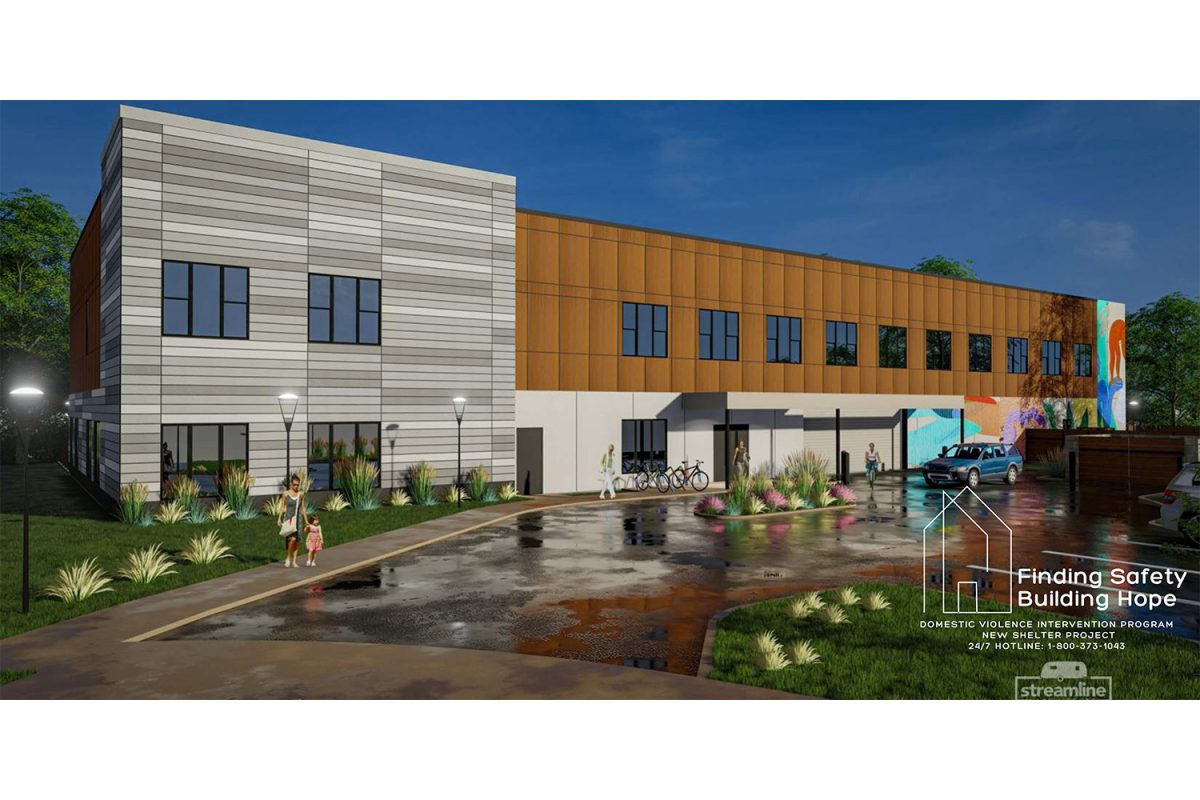The Domestic Violence Intervention Program, also known as DVIP, started construction on a new emergency shelter located in Iowa City, with plans to open it in September 2024.
DVIP provides services to victim-survivors of domestic violence, dating violence, stalking, and human trafficking in Johnson County and seven surrounding counties. The new shelter will have 70 beds to house victim-survivors of domestic violence, in comparison to the 40 that are available at the current facility, located at 1105 S. Gilbert Ct.
In a statement released on the campaign page, DVIP Executive Director Kristie Fortmann-Doser said the program has served 38 percent more victim-survivors over the past five years.
“It is vital for us to meet the increased need and update our space to provide the best possible services to those most vulnerable in our community,” Fortmann-Doser said in the release.
Alta Medea, the community engagement director at DVIP, said the program helps between 350 and 400 people across eight counties each year.
“This past year our emergency shelter provided over 18,000 nights of safety,” Medea said.
With the limited space at the current shelter, the program had to turn to additional forms of assistance such as providing transportation to other domestic violence programs in the surrounding areas.
“Being able to double our capacity means that we can provide safety to as many victims-survivors as possible,” she said. “That will be a huge thing for our community and for victims throughout the area.”
Updated amenities
Along with being able to provide more housing for those in need, the new shelter will also have more space to accommodate families, pets, and individuals with disabilities, as well as updated technology and security.
Cooper’s House is an additional part of the DVIP, where victims and survivors staying at the shelter can keep their pets with them during their time there. Opened in 2017, Cooper’s House is the only program of its type in Iowa.
The new shelter will have five pet suites available to house both cats and dogs for those in need of animal refuge during their stay at the facility.
“That is another area that is dramatically improving both for the safety and security of the animal, as well as the victim-survivor,” Medea said.
With upgraded technology, the new location will have an enclosed parking garage, providing victims and survivors with more safety, as well as an elevator and more accessible rooms for those who require it.
“That is a huge thing for victim-survivors fleeing dangerous situations,” Medea said. “With the increase of technology and satellite images, they’re very exposed, and being able to have a securely enclosed space is really, really important for their safety, as well as their anonymity.”
Medea also said the current shelter only has two accessible rooms, due to the time that it was built, but the new location will have over five.
“With the increased lethality and health conditions of victim-survivors, having an elevator is a huge thing,” she said. “It changes access and autonomy for victims when they have the ability to experience all of the things that we have to offer.”
Johnson County Sheriff Brad Kunkel previously served on the DVIP board of directors for six years. In his current role at the Johnson County Sheriff’s Office, he continues to work for the health and safety of victim-survivors in the community.
RELATED: Police file additional charges for fatal crash in August
“I know this is one of the most hidden yet pervasive forms of violence in any community and I firmly believe that law enforcement can have an impact by making domestic violence reports and investigations a priority,” Kunkel wrote in an email to the DI.
He said after a domestic violence case is reported, it is assigned to a detective to ensure that victim-survivors are connected with appropriate support, and to build stronger criminal cases against abusers.
“Victim safety is our priority and when they are ready to make a report to law enforcement we do a thorough investigation, file appropriate charges, and ensure that no-contact orders are enforced,” Kunkel said.
The DVIP hotline is a free and confidential resource that is available twenty-four hours a day, seven days a week at 1-800-373-1043.



